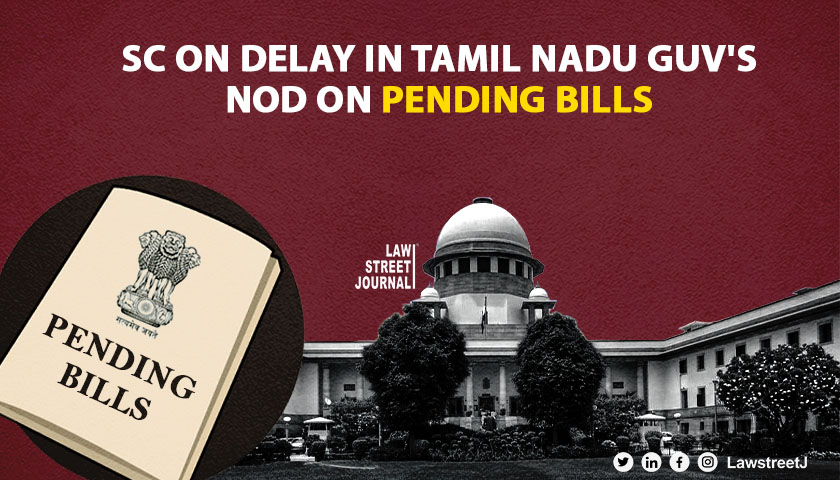NEW DELHI: The Supreme Court on Friday issued notice to the Union government on a plea by the Tamil Nadu government, contending that the Governor has not acted upon 12 Bills, 54 proposals of premature release, 10 appointments in Public Service Commission and other proposals, saying that it is a matter of serious concern.
A bench of Chief Justice of India D Y Chandrachud and Justices J B Pardiwala and Manoj Misra sought a response from the Union government's Ministry of Home Affairs on a writ petition filed by the Tamil Nadu government.
Senior advocate A M Singhvi, Mukul Rohatgi and P Wilson appeared on behalf of the Tamil Nadu government.
As they highlighted the pendency of proposals, the bench said, "It is a matter of serious concern".
The court sought assistance of Attorney General R Venkatramani or Solicitor General Tushar Mehta and fixed the matter for hearing on November 20.
Singhvi referred to pendency of 12 Bills passed by the Legislative Assembly and sent to the Governor between January 13, 2020 and April 28, 2023 for assent.
He said a total of 54 files related to premature release of life terms were pending. The counsel also said out of 14 posts of the TN Public Service Commission, 10 posts are lying vacant due to absence of Governor's nod. Besides, some proposals for sanctions for prosecution have also been not acceded to.
Singhvi relied upon Article 200 of the Constitution which stated the Governor has to take the decision on pending Bills "as soon as possible".
In its petition, the Tamil Nadu government accused Governor R N Ravi of delay in assenting bills passed by the state legislature, which brought the entire administration to a grinding halt.
The plea claimed that the Governor has positioned himself as a political rival to the legitimately elected government.
According to Article 200, when a Bill passed by the legislature of a state is presented to the governor, he has four options: (a) he assents to the Bill; (b) he withholds assent; (c) he reserves the Bill for the consideration of the President; or (d) he returns the Bill to the legislature for reconsideration.
















